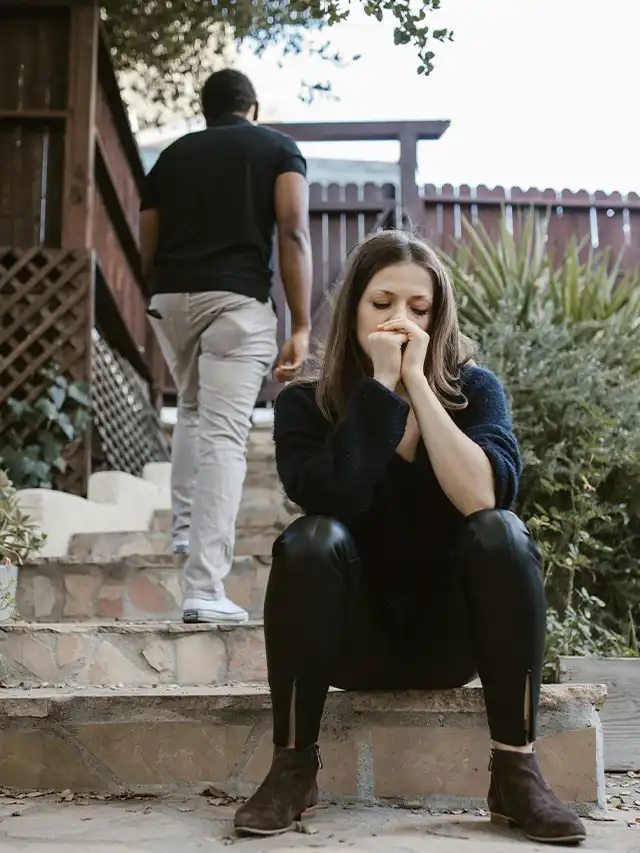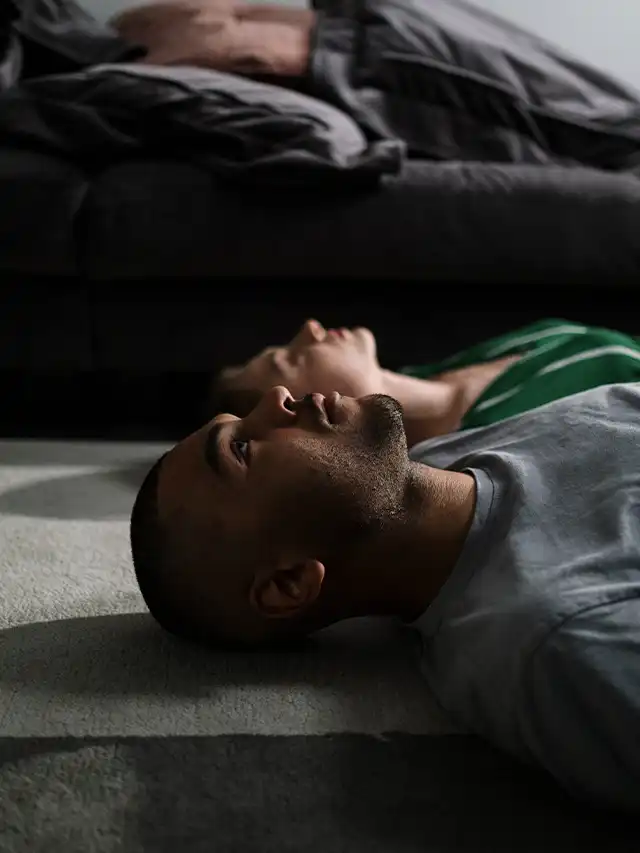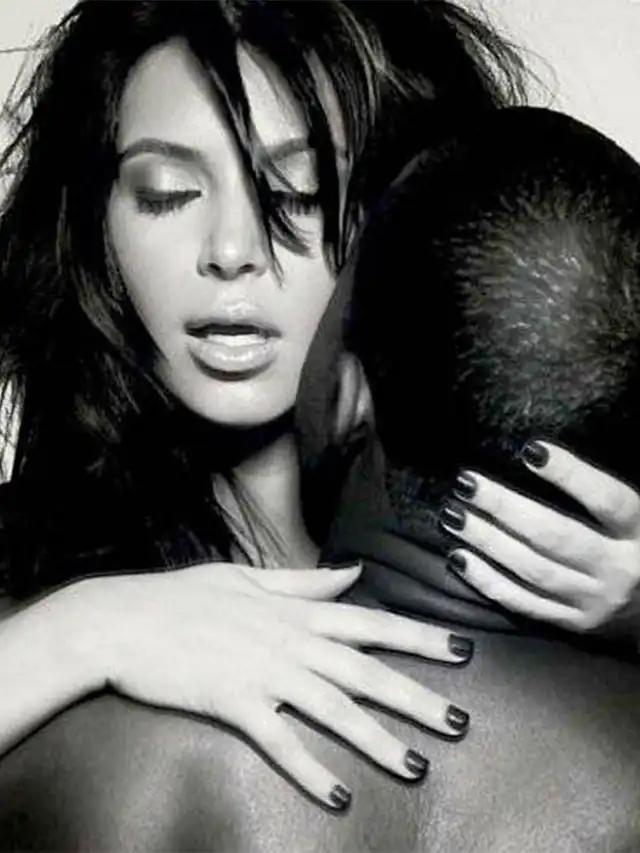Last Updated on June 13, 2024 by Prissila Murillo
They say love is blind. And boy, is that the truth! Sometimes we get so caught up in love that we cannot see our partner’s faults as well as the bigger picture. This includes whether a relationship is serving us as individuals. Therefore, it helps to regularly assess your relationship, both individually and as a couple, to ensure it isn’t turning into a toxic relationship.
Today we’re discussing toxic relationship signs along with the negative impact a bad relationship can have on your mental health. Plus, some of the most common, and most ignored, red flags in relationships!
Identify Toxic Relationship Signs
Unless you’re a psychologist, it’s hard to identify toxic relationship signs and what aspects of a relationship should change. Keep an eye out for these common red flags!
You Constantly Feel Unhappy

Feeling unhappy on the regular is one of many red flags. But sometimes we convince ourselves to overlook these emotions. Remember, good times still exist or there are other areas of the relationship that you excel at as a couple. Unfortunately, relying on the good times can be a patch that’s bound to fail. Be realistic about the long-term, including whether the mental gymnastics are worth the relationship.
You Have Nothing to Talk About

Sometimes a relationship starts strong before fizzling out. You go from talking about anything and everything to scratching your brain for conversation. It seems like you have nothing to talk about or have anything in common anymore. But what could have changed? Often, it’s simply the excitement for a new relationship. Or perhaps the conversation is one-sided. Your partner only talks about themselves, and you find yourself drained from constantly supporting them while receiving no support in return.
You Can’t Tell Your Partner How You Feel

Feeling as though you can’t be honest with your partner is a huge red flag of an unhealthy relationship. It’s one thing to take time to open up and be honest. But it’s another to fear retaliation, a lack of empathy, or criticism. Even worse, you may end up adapting to their response and feel less confident in the ability to advocate for yourself. This can be the beginning of manipulation or controlling behavior.
Your Partner Always Has to Get Their Way

In a healthy relationship, people express care for one another by a willingness to compromise. It can be a huge indicator of an unhealthy relationship if the compromise is one-sided. That is, you’re always the one giving in to what your partner wants. This can leave you feeling unheard and as though you are unequal. In the long run, this can cause you to resent your partner, starting a downhill spiral. Your wants and needs are as important as your partners, and if they cared as much as you, then they too would compromise.
You Lack Trust

Trust is the foundation for a healthy relationship. If your partner has given you a genuine reason not to trust them, especially more than once, it can cripple your chances of success. Unfortunately, trust is hard to gain and easy to lose. And it takes hard work on both people’s ends. A lack of trust can have a tremendous impact on your mental health and self-esteem, which can leave you feeling stressed and angry constantly. It can get exhausting!
Your Self-Esteem Has Changed

There is a wide range of reasons that a relationship can lower your self-esteem. Maybe your partner constantly puts you down. Maybe they don’t trust you and express it regularly. Regardless of the reason, you must make it known that they are crippling your self-worth. In a healthy relationship, people lift one another and support them for who they are. If your partner is outright unwilling to acknowledge or address how they are putting you down, then it may be time to call it quits.
They Refuse to Take Responsibility or Apologize

If there is one personality trait that screams negative, it’s that a person cannot take responsibility or apologize. Remember, this is the adult thing to do after all! Granted, it’s fine to advocate for yourself when necessary. But taking responsibility now and again creates trust and dependability. It shows a willingness to be honest and vulnerable, which will encourage your partner to come to you more. If your partner can’t or is unwilling to do this, it can be frustrating and even detrimental to your relationship.
Controlling Behavior

Another serious red flag that is easy to overlook is controlling behavior. Controlling behaviors can start small but escalate quickly. These behaviors can range from insisting that they get their way every time to dictating where you can go and when. Controlling behavior can quickly become abusive and is usually noticed by friends before the person who is actually in the relationship. Listen to the people around you and make the boundaries clear in your relationship.
A Reminder
Leaving a relationship is never easy, but you must advocate for yourself. One of the best ways to end an unhealthy relationship is to surround yourself with support. You’ll need help to confidently move on from this stage of your life, so accept love from those who give it. Some people can find it difficult to put themselves first, but at a time like this, it’s essential. All too often we guilt ourselves into staying in a relationship. But you should treat yourself the same way that you would treat someone whom you cared for. So end the relationship and make a clean break.
Don’t try to stay friends. It’s not worth the risk to your mental health, and it’s unfair to the people who supported you throughout the breakup. Finally, find a way to fill the void. Following a breakup, you may feel that there is too much free time on your hands. Find positive and fulfilling ways to spend it, including working on yourself, pursuing your passions, or directing energy towards other relationships. Be vigilant for red flags in future relationships to ensure a healthier, more fulfilling connection.
We hope that this information on toxic relationships and red flags helped you! Beyond that, the next helpful steps might include seeking personal or relationship counseling.
Leaving an abusive relationship is a highly personal, individual decision, but all survivors benefit from having trusted people during this time. If you need the assistance of an advocate, visit the National Domestic Violence Hotline.
Why Do Men Always Stare at Women in Leggings? Unpacking the Attraction | 2024
Leggings have become a staple…
Top Sexual Fantasies for Men: Explore the 6 Ultimate Desires
Sexual fantasies tend to push…
20 Kim Kardashian Shares the Best Sex Positions Used in Ray J Sex Tape
Kim Kardashian blew up the…
Women’s Biggest Sexual Fantasy | Dr. Jordan Peterson Psychologist
In this YouTube lecture, Peterson…
How do you know if your relationship is toxic?
Unhealthy relationship indicators include feeling like you have to tread carefully around your partner, having persistent jealousy, and not receiving enough support. If you need to leave, there is support available. Every aspect of a healthy relationship seems to fall into place.
What is the difference between healthy and unhealthy relationships?
While abusive behaviors aim to impose authority and control over someone else, unhealthy behaviors may attempt to do so covertly or overtly. In contrast, healthy behaviors support equity for both or all partners.
How to leave a toxic relationship?
– Speak with a therapist or domestic violence advocate for support. They can assist you in creating a safety plan and gaining access to resources for more assistance.
– Be honest with those you love. This doesn’t have to be done by you alone.
– Bring a companion.
– Modify the phone number you use.
– Attend to your own needs.
Can a toxic relationship become healthy?
It is possible to save a toxic relationship in some situations. But to fix a toxic relationship, both parties must admit the bad behavior and commit to change. This can entail contacting a therapist or relationship counselor for assistance.
How do you get over a toxic relationship when you still love them?
Step 1: Steer clear of denial.
Step 2: Give Up on Hoping Your Spouse Will Change.
Step 3: Acknowledge That Your Actions Are the Only Thing Under Your Control.
Step 4: Create And Uphold Clearly Defined Boundaries.
Step 5: Rely on your loved ones.



